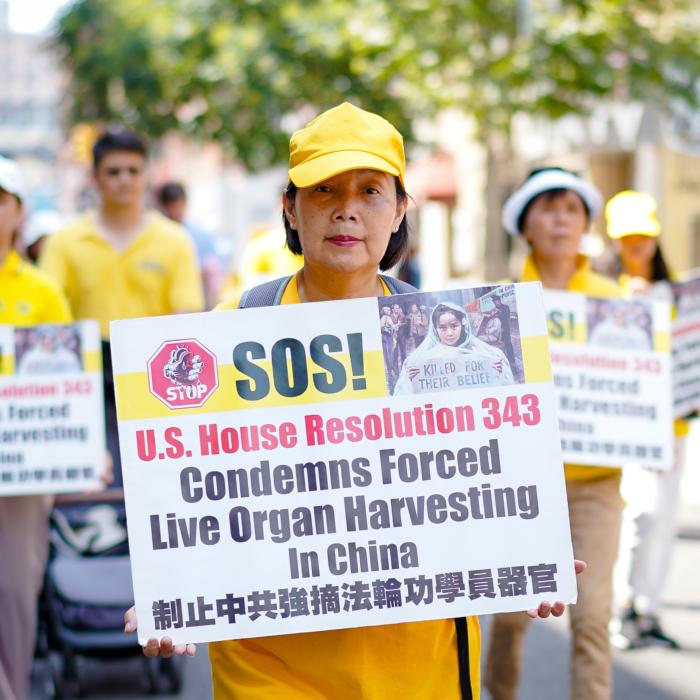A Utah Senate committee has advanced a bill aimed at combating one of the Chinese regime’s most horrific crimes: forced organ harvesting.
The new legislation, introduced by state Republican Sen. Michael McKell, would bar insurance providers from paying for an organ transplant or post-transplant care if the transplant operation is performed in China. It would also authorize the deputy director of the Health and Human Services Department to designate additional countries if their governments were known to be involved in the practice of forced organ harvesting.
Under the Chinese Communist Party’s (CCP’s) watch, the practice of forcibly harvesting vital organs from living individuals for profit has grown into a flourishing industry. It has added to the abuse of vulnerable groups such as detained adherents of Falun Gong, also known as Falun Dafa, a spiritual practice that has faced a relentless persecution campaign by the CCP since 1999.
“This bill is very straightforward. It deals with forced organ harvesting,” Mr. McKell told the committee. “It goes to the line there in the bill, which is defined as this removal of one or more organs from a living individual, or from the individual killed for the purpose of removal of one or more of the individual organs, by means of coercion, abduction, deception, fraud, abuse of power or position of vulnerability.”
Witness Account
In China, the waiting time for the transplant of a vital organ could be as short as a few weeks, something unheard of in the United States or any country relying on a voluntary donation system. The short waiting time has attracted people worldwide to travel to China for life-saving operations.At the Feb. 21 committee hearing, Sun Changzhen of Utah said she and other Falun Gong practitioners were subjected to blood tests while they were imprisoned in China. She said she became the target of the authorities in 1999 when the ruling communist Party launched a nationwide campaign to eradicate Falun Gong, whose popularity—as many as 100 million adherents in China at the time—was perceived by the CCP as a threat to the regime’s grip on power.
Ms. Sun was arrested and detained by Chinese authorities in April 2001 for refusing to renounce her faith in Falun Gong, which involves meditative exercises and moral teachings centered on the principles of truthfulness, compassion, and tolerance.
Ms. Sun described the forms of abuse she endured in a detention facility in China, which included electric shocks, sleep deprivation, and prolonged periods of sitting in the same position.
“The physical and mental damage that I suffered during my illegal imprisonment was beyond [words],” Ms. Sun said in her statement, which her daughter read at the hearing.
While being transferred to another prison in Beijing in July 2001, she and about 20 other female Falun Gong adherents were subjected to blood and other medical tests, Ms. Sun said. “None of the criminal population underwent this testing,” she said.

Han Yu of New York told the committee that she supported the bill because she firmly believed her father was a victim of the CCP’s forced organ harvesting.
Ms. Han and her relatives managed to view her father’s body, which she said had become “terribly thin” at the time.
“But what shocked me the most was the fake-like stitches from his throat all the way down to his abdomen. We could feel the hard blocks of ice beneath his skin,” she said.
The police told them the incision was due to an autopsy, but Ms. Han said her family had never authorized an autopsy.
“I realized that my father was likely one of the victims,” she said. “I don’t want my father’s death to happen in vain. I hope SB 262 can [become law] to help prevent Utah residents from being involved in this terrible crime.”






